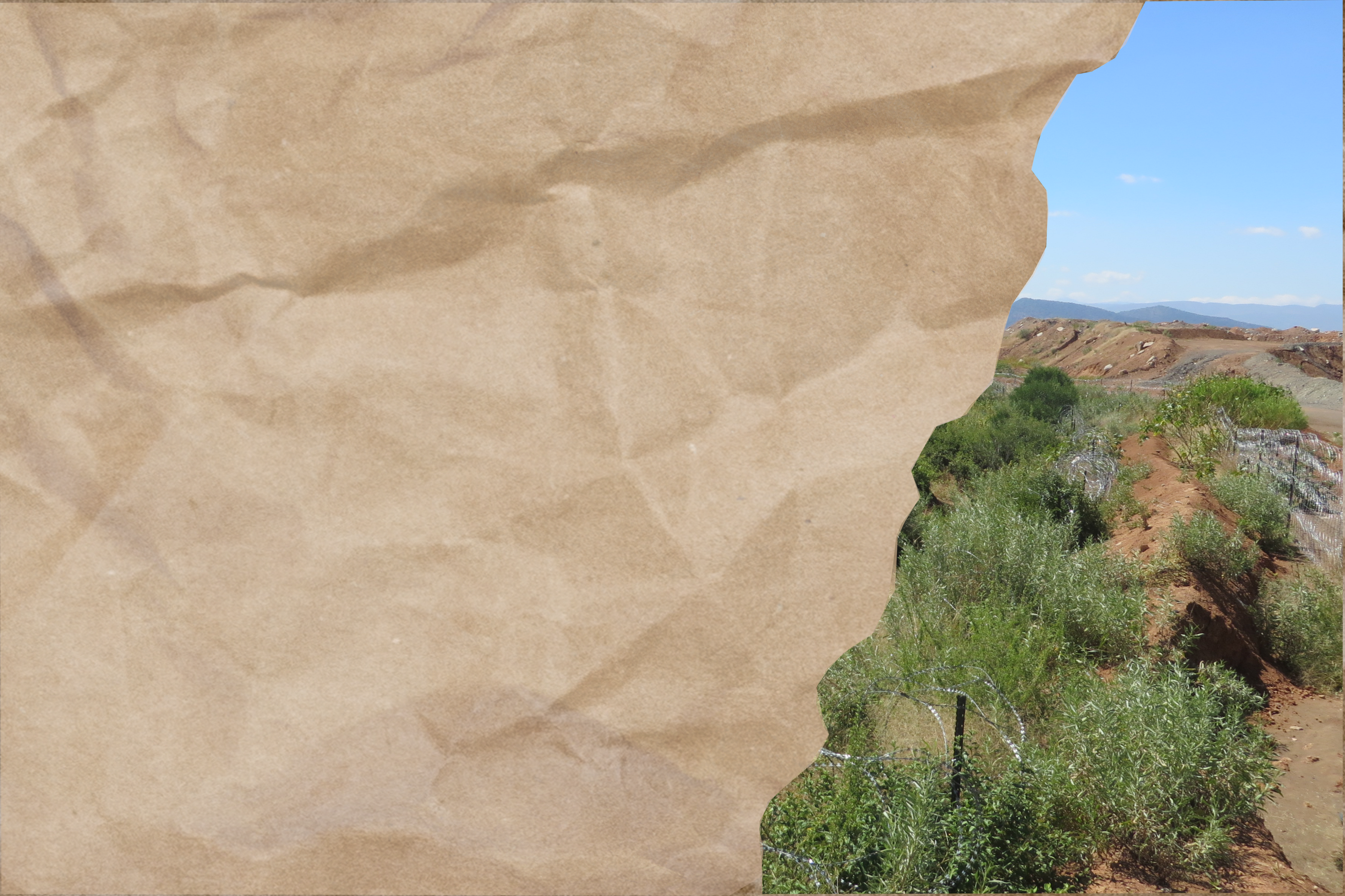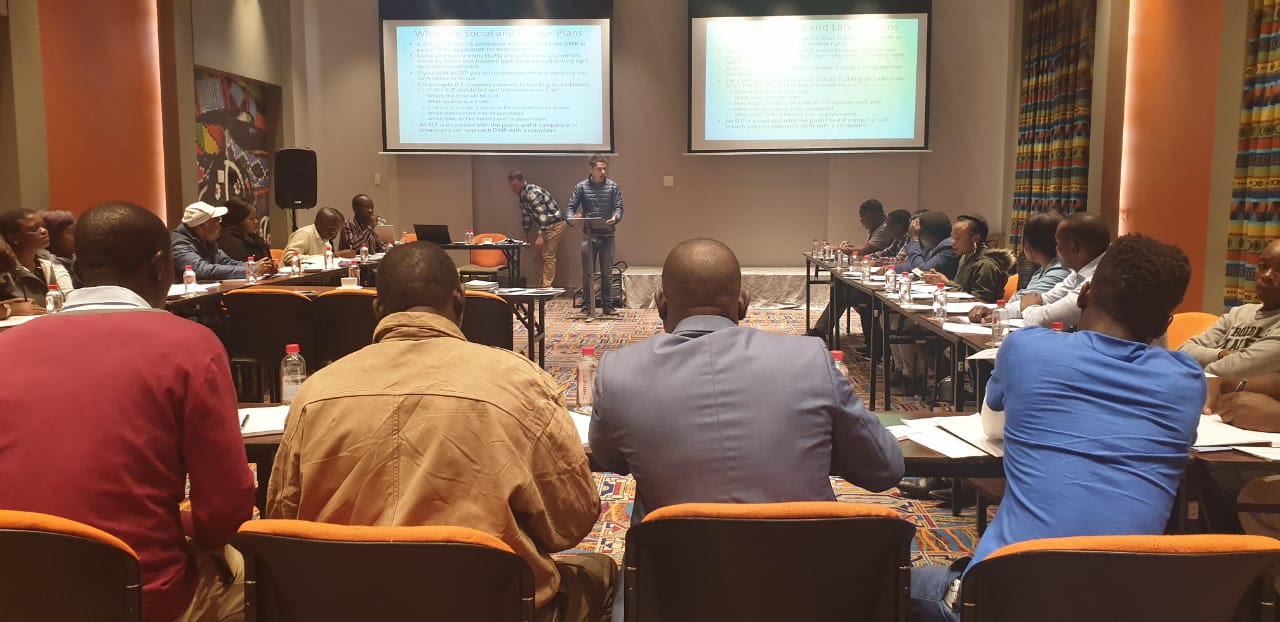The Centre for Applied Legal Studies (CALS)
Bertha Justice Partner CALS collaborates with SCMAC to shine a light on the impact of current and future mining. CALS develops advocacy tools so communities can hold mining companies and government to account.

Bertha Justice Alumnx Thandeka Kathi and Busisiwe Kamolane, as well as Bertha Justice Fellow Mazi Choshane from the Centre for Applied Legal Studies (CALS), have teamed up with Sekhukhune Combined Mining Affected Communities (SCMAC) and Amnesty International South Africa (AISA) to advocate for best practices for protecting mining-affected communities and the planet. They’re using litigation, research and advocacy to tackle current and future mining operations in South Africa’s Limpopo Province. The stakes are high, as this area includes existing mining as well as South Africa’s largest energy-industry development project.
For Sekhukhune, access to water is a daily challenge. Official statistics for 2016 indicate that only 3.8% of households in the local municipality have piped water within their dwellings.
During 2019 and 2020, Southern Africa experienced the worst drought in decades, affecting access to food, water and livelihoods. Despite the mineral wealth in areas of Sekhukhune, communities near existing mines experience water scarcity and unfulfilled infrastructure commitments, such as schools without electricity or functioning toilets and failed road projects.
The mining industry in South Africa has a long history of inequality, both benefiting from and driving colonialism and apartheid. In current times, mining companies continue to exploit natural resources. However, due to a Constitutional Court ruling in 2020, to which CALS contributed, it was clarified that in order for mining-affected communities to exercise their constitutional rights, the mining companies are legally required to publish their mining rights applications, including their Social and Labour Plans (SLPs). SLPs are the mining companies’ legally binding commitments on how they intend to share the benefits of mining with workers and affected communities, including developing workers’ skills, upgrading local schools and roads and providing housing, water and sanitation. Access to the SLPs is a step towards greater accountability and improving consultation with communities at the time of the mining company’s application. However, a social audit conducted by SCMAC and CALS in 2019 found that existing commitments in three mining companies’ SLPs are either not followed through or are being ineffectively implemented, and therefore are having little impact on access to safe water, healthcare facilities and usable roads.

Facing this reality, CALS, SCMAC and AISA are working on a collaborative research project aiming to produce evidence that local communities and movements can use in state- level processes to hold companies accountable to their implementation plans. At the same time, the research provides a basis for advocacy through CALS’ role convening the legal working group at the national Climate Justice Coalition movement to fight for legislative changes. These changes would ensure communities are brought into regional development decision-making structures everywhere to hold the government and mining companies to account on implementation challenges.
The research and decision-making is driven equally by the partners, and the principled approach to their work means that all research is run by the community. In CALS, this work takes place in the Environmental Justice Programme. Thandeka – whose expertise is in gender and who has practiced as an attorney for many years – underscores why the research project is interconnected with ongoing casework: “The themes that have emerged from the research have helped the team to think strategically about areas of law that we need to divert more resources to. For example, issues of climate change, environmental racism and the disproportionate effect of environmental harm on women are becoming evident from the interviews with participants. Therefore, the team has endeavored to focus more on these issues in their litigation strategy.”
Recent Alumnx, attorney and research coordinator Busisiwe sets out the bigger picture: “For long periods of time, corporations have been shielded from accountability. This is evident under international law (where obligations fall on the state and not private actors) and even in South Africa. The push for binding obligations on business through a treaty is also linked to the many human rights abuses conducted by mines. It is therefore vital that mines are held accountable. It is also time for mines to fulfill their positive obligations to communities that are impacted by their activities. States’ oversight function over mines has been seriously lacking, and this too needs to be remedied.”
The final research findings are being drafted in 2021. With the huge number of mining operations across the country, tackling the systems that perpetuate harms to communities and the environment is more important than ever. It is hoped that the research will be a fierce advocacy and accountability tool for communities like those in Sekhukhune, helping to stem the ongoing degradation of natural resources.
CREDITS
Photo 1: View of open-cast mine from the backyard of on house
Photo 2: Mampa village, Sefateng Mine. Image shows the open-cast mine viewed from the backyard of one house. Image: Xander Ehlers & Charl Naude, courtesy of Mauritz Naude and Associates
Photo 3: A pre-project meeting CALS had with SCMAC. This was a part of the ground-truthing baseline assessment in Burgersfort, Sekhukhune. Image: CALS
Photo 4: The new site of Seroletshidi High School. The previous school was closed in or around 2016 to make way for a mine. The previous site had an electricity connection and its own borehole that supplied the school with water. The new site currently has no electricity, and water supply is unreliable. Image: Xander Ehlers & Charl Naude, courtesy of Mauritz Naude and Associates
Author: Shveta Shah, Bertha Justice Initiative Director
Editorial Consultant: Karen Frances Eng
This story was originally published in the Bertha Climate book and some of the information in this story may have changed since it was first published.



 Built with Shorthand
Built with Shorthand